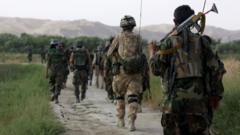In a powerful wave of testimony, men from Ireland are coming forward to reveal their harrowing experiences of sexual abuse in Catholic schools that were part of their youth. Over the last couple of years, numerous individuals, predominantly in their 50s and 60s, have exposed the abuse they endured at the hands of religious orders, igniting a national conversation about deep-seated issues within these institutions.
A preliminary government inquiry unveiled nearly 2,400 allegations of sexual abuse connected to these religious schools ranging from the 1960s through the 1990s, exposing a shocking count of 884 alleged abusers. Norma Foley, Ireland's Minister of Education, characterized the extent of abuse as "truly shocking," leading to a comprehensive government investigation aimed at addressing these concerns.
As the country grapples with the remnants of such legacy, the stories of older male survivors are crucial in challenging societal norms surrounding masculinity, shame, and silence surrounding sexual abuse. Tim Chapman, a restorative justice expert, emphasizes the far-reaching implications of these testimonies, stating, "The ripple effect of harm must bring some impact on broader Irish society."
The abuse survivors' stories are deeply personal, and they carry artifacts from their past, including faded school yearbooks and other mementos that evoke memories of innocence shattered. The cohort of survivors is gaining momentum in their quest for recognition and accountability, raising awareness and fostering discussions that have been long overdue in Irish society.






















